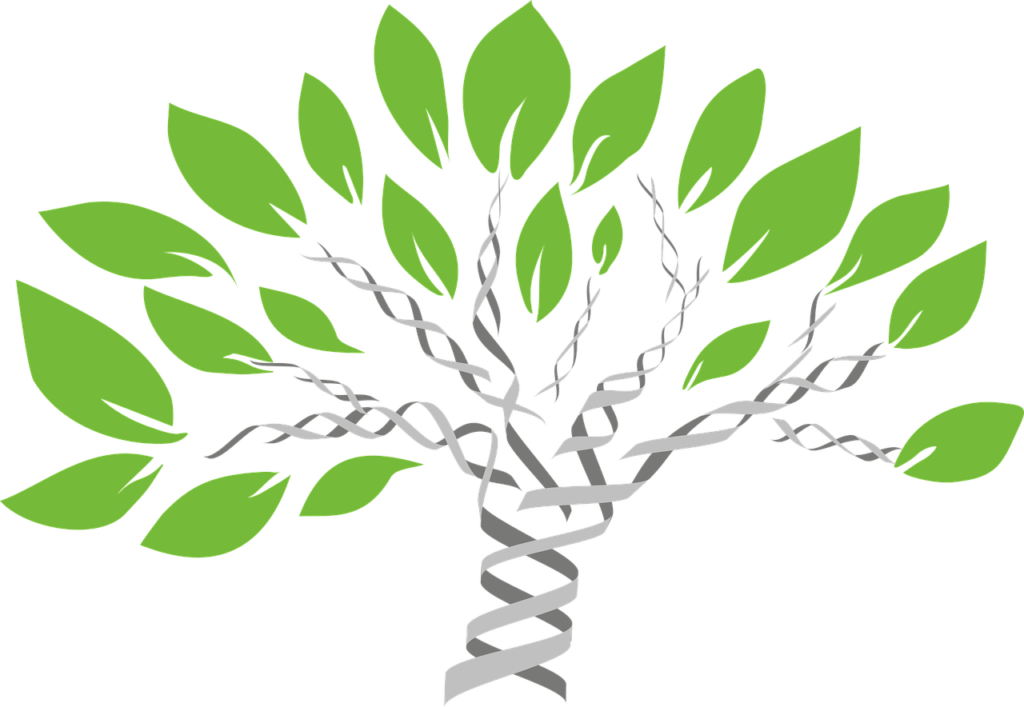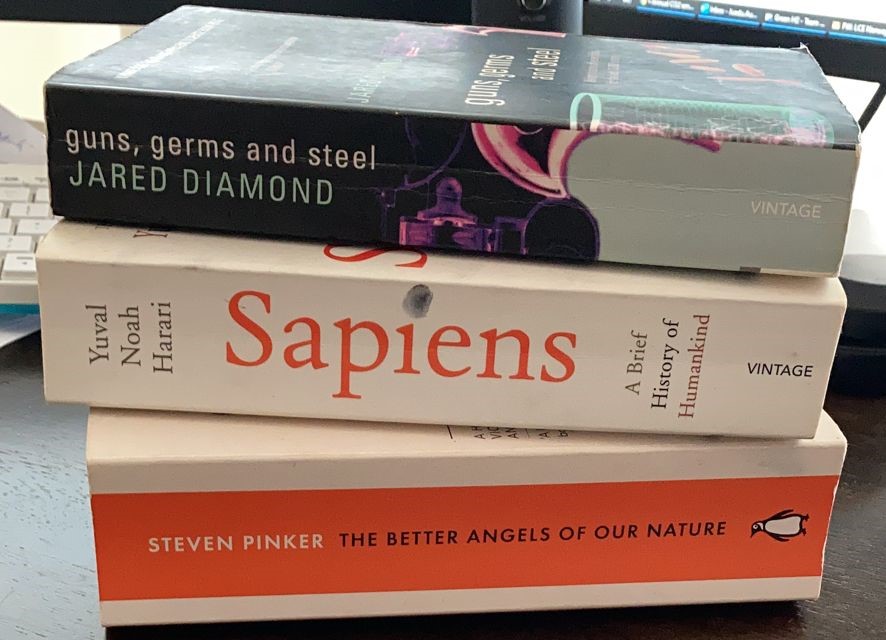SLC24A5 and the Great Human Divide
SLC24A5 is a gene. The gene finds a special place in human cultural discourse because it produces a protein critical to the production of melanin – the great-divider pigment of human skin.
What is an SNIP?
A single nucleotide polymorphism, or SNP, is a variation at a single position in a DNA sequence among individuals. If it occurs in more than 1% of a population, they are an SNP group. If the SNP occurs in a gene (resulting in what is known as alleles), it can have some consequences – rs1426654 is one of them, as we shall see.
A Quick Tour to the Basics
Imagine that the GENOME is a book. There are 23 chapters called CHROMOSOMES. Each chapter contains several thousands of stories, called GENES. Each story is made up of paragraphs, called EXONS, which are interrupted by advertisements called INTRONS. Each paragraph is made up of words called CODONS. Each word is written in letters called BASES. The words are written on long chains of sugar and phosphate called DNA!
– Matt Ridley in “Genome”

Allele and Us
As we have seen earlier, a gene has more than one allele if an SNP occurs within a gene. Our SLC24A5 gene also has alleles: the original allele that still dominates in the African and East Asian population (and contains the amino acid alanine), and the variant allele dominates in the Europen population (and contains threonine).
Why Me?
Why do ‘the originals’ have an alanine version, and what does it do? To answer the first part of the question, you should know how nature works. It is not that the originals have alanine, but only the alanine-containing humans survived the test of time in that location. The alanine allele triggers pigment production and defends the lower layers of the dermis from cancer-causing ultraviolet light, giving a small but significant additional life expectancy for people carrying this natural sunscreen.
The case with the sun-starved European side is quite the opposite: to fight Vitamin D deficiency, they must capture as much light (UV) as possible, and the pigment melanin is a potentially fatal blocker!
Does This Change Our Attitudes?
Unlikely. The notion that human complexion is only skin deep may be necessary but never a sufficient argument for people to stop distinguishing others based on colour (racism). Irrational as we are, humans will always keep inventing newer tricks to match their fancies and exercise their territorial powers. But this can, at least, refute one such stupid argument, and I will say I did not waste my page!
[1] SNP Definition: Nature
[2] Human Skin Color Gene: Scientific American
[3] SLC24A5: Science
[4] The Light Skin Allele of SLC24A5: Plos
[5] Skin Color for Indian Population: The Hindu
SLC24A5 and the Great Human Divide Read More »

